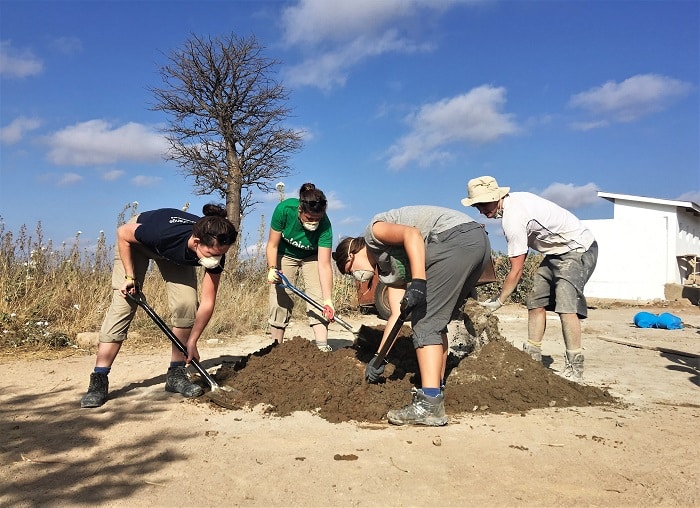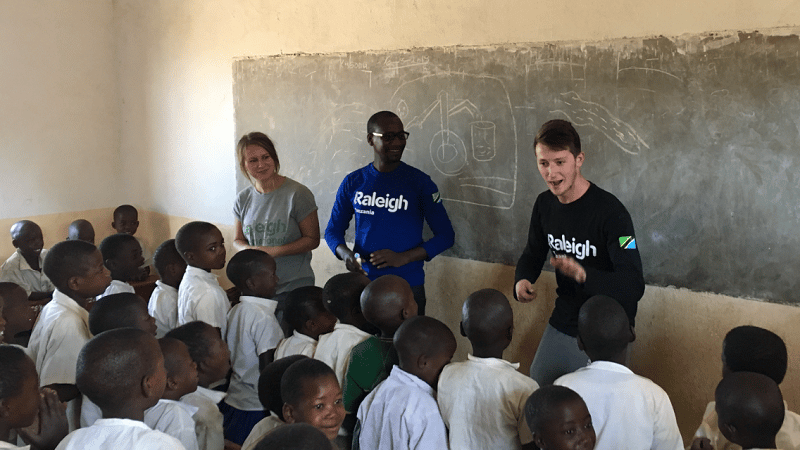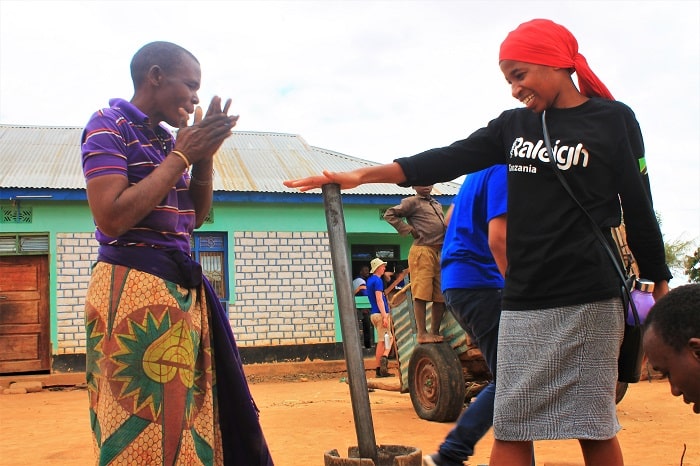Raleigh programmes contribute to Sustainable Development in Tanzania
How Raleigh Expedition programmes contribute to Sustainable Development in Tanzania
Stages of a WASH project
Before arriving in rural villages to commence work on our School Water Sanitation and Hygiene (SWASH) projects, Raleigh’s team in Tanzania conduct two months of preparatory work with key stakeholders in the respective communities. Following this, direct delivery of each of our SWASH projects in a village takes a minimum of 6 months. Many volunteers will spend shorter periods of time working with us, but they always fit in to the bigger and sustainable picture of delivery. Every aspect of the long-term project is meticulously planned so that each individual volunteer’s time is used effectively.

Upon arrival in Morogoro, Expedition volunteers receive training on Water, Sanitation and Hygiene (WASH), Natural Resource Management (NRM), health and safety, cultural awareness and much more. Having completed training, the volunteers then deploy in groups to the rural villages with a clear outline of their aims. Depending on when they arrive, volunteers may work at the beginning of one of our WASH projects where they will be laying the foundations and building up essential relationships with the community members. Alternatively, volunteers might arrive to an existing structure and use their fresh energy to maintain momentum of the project, keeping both the construction and the education of the wider community on track.
The volunteers working on our four current projects in Tanzania, have been delivering the final phase of construction and ensuring the communities are feeling prepared to take ownership of the facilities and knowledge that the Raleigh team will leave behind. Only after the facilities have been officially opened for use through an exciting opening ceremony, volunteers depart from the village confident that the project will continue safely in the hands of an empowered community. Members of the Raleigh team will continue to monitor our projects for a period of time up to a year after volunteers leave and follow up further down the line too. All of this is to ensure the longevity and sustainability of our projects.
Value of Individual Volunteers
A Raleigh WASH project has many different elements which make up delivery, and each one plays a key role in the project’s success. On top of construction, our volunteers teach creative and carefully-planned SWASH lessons to schoolchildren, lead meetings with key stakeholders and integrate into their community. This is why we value our volunteer’s energy so much.

This is also why Expedition volunteers learn to be open and adaptable. Raleigh Expedition in Tanzania is not only dedicated to sustainable development in rural communities but also to the personal development of young people. Raleigh are fully committed to achieving both through our volunteers.
“I now have more confidence than I can believe. I’ve learnt a lot about myself and about how people in other cultures live, both from my fellow volunteers and the village community. Someone here told me “courage comes before confidence”, this is something that has motivated me in Tanzania and will continue to do so throughout my life.” George, Expedition Volunteer

We at Raleigh feel strongly that this experience can be life-changing both for members of the communities that we work in and for the volunteers who take part on Expedition. It is truly exciting to see young people who are full of drive find a sense of direction for their energy.
“Due to the professional and personal skills that I have learnt on Raleigh I will be a better person. I believe I will be able to be an innovative and creative woman and do something to bring about gender equality in society.” Zawadi, Expedition Volunteer
Words by Communications Officer Lou McGowan.